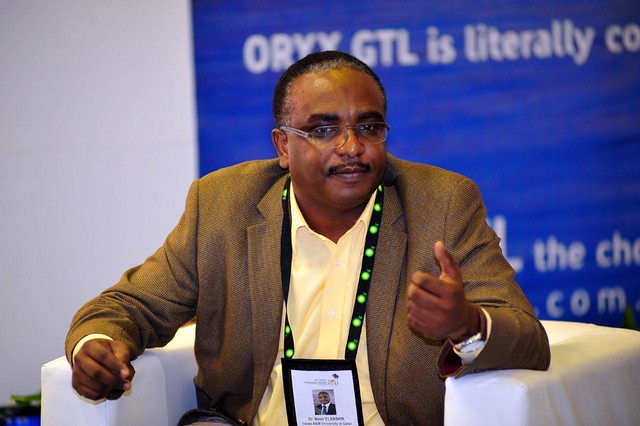
Continued…
Roberts was later instrumental in Elbashir’s petition for permanent residency, which he attained based on his outstanding research at Auburn, where he was a proven asset in the advancement of ultra-clean fuels and utilization of coal and natural gas in energy markets.
Elbashir returned to industry for nearly three years as a researcher for BASF Catalysts, but ultimately set his sights back on academia and was named assistant professor of chemical engineering at Texas A&M at Qatar, a position he held from 2008 to 2012, when he was promoted to associate professor.
“I found myself more connected to teaching, which led me to go back to academia and join Texas A&M at Qatar,” he says. “The campus was only five years old at the time, in a small country that has a significant wealth of natural gas. I envisioned that this would be an excellent opportunity for me to make a real difference based on the experience that I garnered in academia, as well as industry, and to initiate research programs that could advance this technology further.”
His interests during his time at Auburn have carried over to his current research on reactor technology and catalysts for the production of ultra-clean fuels and value-added chemicals from natural gas, for which he was recognized by the Qatar Foundation. Elbashir’s team is investigating efficiency and influential environmental factors to improve the Fischer-Tropsch process — factors which could have a significant impact on energy markets. The Qatar Foundation is providing Elbashir’s team with more than $5 million in research funding to support projects in collaboration with leading energy corporations and academic institutions, including Auburn University.
“The Qatar Foundation’s emphasis on building a culture of research through the Qatar National Research Strategy enables projects such as this to flourish,” says Elbashir. “Environments like this, and at Auburn, encourage breakthrough ideas and recognize how international collaborations and industry partners are able to come up with solutions to real-world problems.”
Elbashir’s Fischer-Tropsch design operates in a reaction medium that has properties between the gas phase and liquid phase, known as supercritical fluids media. This conversion of natural gas into ultra-clean fuels and value-added chemicals has increased the use of gas-to-liquid technology in energy production, following an increase in the global demand for
crude oil.
“Nimir’s contributions to such an evolving industry are exemplary,” says Roberts. “His award-winning research demonstrates a dedication to developing new technologies that can improve our world today, as well as tomorrow. He understands the significance of practical research applied to industry problem solving.”
As a researcher turned industrialist turned academician, Elbashir understands the need for practical applications in energy and fuels research better than most, which is why he established the Nimir Elbashir and Family Annual Graduate Travel Award in Chemical Engineering at Auburn. His support of graduate student travel ensures that Auburn’s outstanding students are afforded opportunities to present their groundbreaking research to peers and industry leaders.
Elbashir is much more than a classic Auburn success story; he’s a product of the state-of-the-art education and training he received as an Auburn engineer.
“Whatever he sets his mind to, that’s what he’ll accomplish,” says Roberts. “He is a prime example of what we hope for all of our graduate students to achieve — success by their own definition.”
